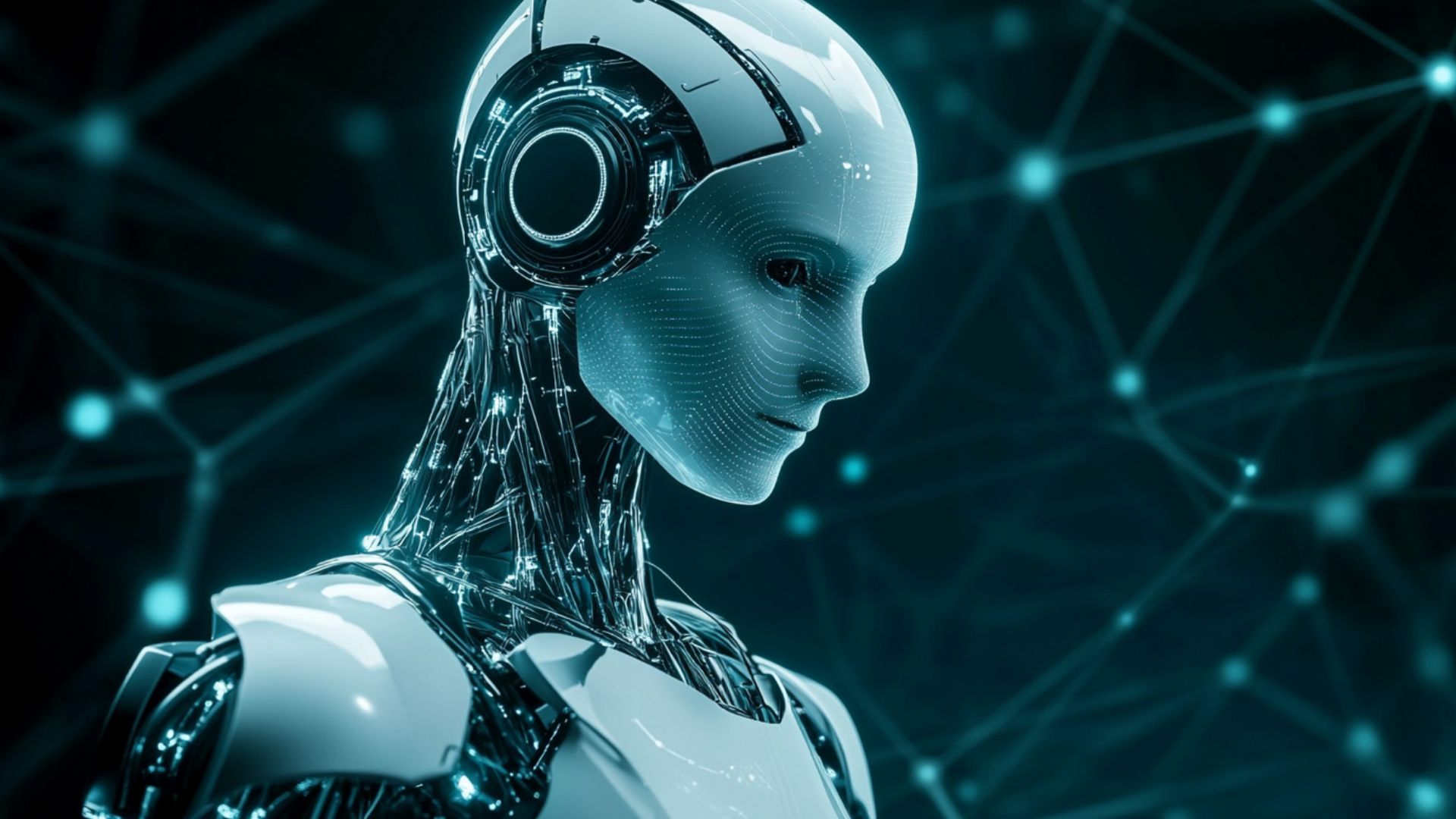Leveraging Chatbots for Digital Marketing Success

In today's web landscape, firms seek innovative ways to engage clients and drive conversions. Enter bots. They're web helpers revolutionizing how brands communicate with their audience.
This article explores the transformative potential of virtual assistants for digital marketing. We'll delve into how these automated tools can significantly enhance client engagement. They provide 24/7 support, answer common questions, and guide users through the sales funnel.
By understanding the power of bots, you can unlock a new level of web promo success.
Introduction to Chatbots in Digital Marketing
They are computer programs. They simulate conversations with users through text or voice communications. Powered by AI and NLP, they can understand user queries and respond naturally. In the realm of web promo, bots serve as web brand representatives. They communicate with website visitors, social media followers, and messaging app users.
Integrating a digital marketing virtual assistant offers a multitude of benefits:
- 24/7 availability.
- Enhanced client engagement.
- Lead generation and qualification.
- Personalized client experiences.
- Cost-effectiveness.
Some may fear bots will replace human communication entirely. However, they ultimately function best as helpful teammates. They free up human marketers by providing 24/7 support and automating repetitive tasks. Those can focus on complex issues and build stronger relationships. Bots technology continues to evolve. So, expect even more seamless and personalized communications. It will empower firms to reach clients and truly connect with them.
Key Features of Effective Marketing Chatbots
The main features of digital marketing bots are:
- Engaging Personality. An effective promo bot should have a personality that reflects your brand voice. It could be informative, playful, or helpful. It depends on your target audience and overall brand image.
- Natural Language Processing. The bot should understand natural language queries and respond in a way that feels human-like. It fosters trust and encourages users to engage in conversation.
- Context Awareness. A good digital marketing bot keeps track of the conversation history and adapts its responses accordingly. It provides a seamless user experience and prevents repetitive information exchange.
- Seamless Handover. Bots can handle many situations. However, there will be instances where human intervention is necessary. Effective bots should seamlessly transfer complex issues to a live representative, ensuring client satisfaction.
- Data Analytics. Integrating analytics tools allows you to track user communications with the bot. You can gain valuable insights into client behavior. You can use this data to refine your promo tactics and improve the functionality.
The specific features needed for your bot will depend on your digital marketing goals. For instance, a lead generation bot on your website might focus on collecting user contact information. Meanwhile, a bot for client service can focus on providing quick solutions to common inquiries.
Case Studies: Successful Chatbot Campaigns
Here are two real-world examples of how bots have been used to achieve web promo success:
- Sephora Beauty Helper. Sephora's bot allows users to try on makeup through augmented reality. This innovative and interactive approach not only engages clients. It also personalizes the beauty product shopping experience, leading to increased sales.
- Domino's Pizza Ordering Bot. Dominos utilizes a digital marketing chatbot that allows clients to order pizza directly through Facebook. This convenient and user-friendly experience streamlines the ordering process. It leads to higher conversion rates and client satisfaction.
These campaigns showcase the effectiveness of bots in exceeding client expectations. The Sephora bot leverages cutting-edge technology to personalize product communications. Meanwhile, the Dominos bot prioritizes convenience and simplifies the ordering process. Both examples show how bots can enhance client engagement.
Chatbots and Customer Interaction
Digital marketing chatbots have revolutionized how firms communicate with clients in the web landscape. They act as tireless helpers. They enhance client service and foster meaningful communications 24/7. Here's how bots elevate client experience:
- Streamlining Client Inquiries. Bots can answer frequently asked questions (FAQs) about products, services, or policies. It frees human representatives to handle more complex issues and reduces client wait times.
- Personalized Support. Bots can leverage user data and past communications to personalize client support. Imagine a clothing store bot that remembers a client's size and style preferences. It offers tailored product recommendations based on past purchases.
- Real-time Problem Solving. Digital marketing virtual assistants can offer immediate solutions to common problems. For instance, a travel booking bot could guide users through changing flight itineraries. Or it can offer alternative travel options.
- 24/7 Availability. Unlike human representatives, bots are available around the clock. It ensures clients can get help whenever they need it. It's regardless of time zone or work hours. This constant support builds trust and fosters brand loyalty.
- Gathering Consumer Insights. Bots can analyze conversation data to gather valuable client insights. It can include feedback on products and suggestions for improvement. Also, it can include areas where the client experience can be enhanced. These insights can be used to improve promo campaigns. It helps develop new products and personalize future client communications.
Digital marketing virtual assistants act as a valuable bridge between brands and clients. They streamline basic inquiries, personalize support communications, and provide real-time help. Also, they collect data and provide insights. Bots empower firms to constantly improve their client service and promo tactics.
Chatbots as a Tool for Increasing Conversion Rates

In today's competitive web landscape, converting website visitors into paying clients is crucial. When programmed tactically, bots can be a powerful tool for boosting conversion rates. Here's how:
- Targeted Lead Generation. Virtual assistants for digital marketing can qualify leads. They engage visitors in conversations. And they gather valuable data about their needs. Imagine an e-commerce bot that asks users about their budget and desired features. And this is all before recommending specific products. This approach increases the likelihood of conversion. It's done by presenting relevant options to qualified leads.
- Personalized Sales Support. Bots can act as web sales helpers. They guide potential clients through the sales funnel. They can answer real-time product-related questions, address concerns, and highlight product benefits. This personalized approach fosters trust and increases the chances of a purchase.
- Promotional Offers and Upselling. Digital marketing bots present timely promotional offers and upselling opportunities. It's based on user behavior and past purchases. For instance, a bot might suggest a phone case complementing a smartphone purchase. Or they can offer a discount code upon reaching a certain spending threshold. These targeted promotions can incentivize purchases and boost overall revenue.
- Streamlined Checkout Process. Bots can simplify the checkout process. It's done by guiding users through each step and offering help if needed. They can help users fill in forms, address payment issues, and provide order confirmation messages. This smooth user experience reduces friction in the conversion funnel. It leads to higher conversion rates.
- Abandonment Cart Recovery. Bots can recover abandoned shopping carts – a major pain point for e-commerce firms. Bots can salvage potential sales and recapture lost revenue. They prompt users to revisit their carts, reminding them of saved items or offering help with checkout issues,
Optimizing bots for digital marketing communications for conversions requires tactical planning. Here are some key considerations:
- Clear Calls to Action. Prompt users with clear calls to action throughout the conversation. It nudges them towards the desired outcome. Whether it's making a purchase, signing up for a newsletter, or downloading a trial.
- Data-Driven Personalization. Leverage user data and past communications to personalize the bot experience. It could involve offering targeted product recommendations. They suggest relevant resources or tailor promotions to specific client segments.
- Seamless Handover to Sales Representatives. Provide a smooth transition to human representatives for complex inquiries or purchase decisions. It ensures a positive client experience and maximizes the chances of conversion.
Future Trends in Chatbot Technology for Marketing
The world of digital marketing bots is constantly evolving. Exciting advancements are poised to revolutionize the way they communicate with clients. Here's a glimpse into what the future holds:
- Enhanced AI and Machine Learning. Advancements in AI and ML will see bots develop even greater conversational abilities. They'll become adept at understanding complex user queries. They will analyze emotions and respond with nuanced and human-like dialogue. It will foster more natural and engaging client communications.
- Omnichannel Bot Integration. Bots will seamlessly integrate across various promo channels. It includes websites, social media platforms, and messaging apps. It will provide a unified client experience. It allows users to communicate with the chatbot for digital marketing through their preferred platform. It's regardless of the device.
- Advanced Personalization. Bots will leverage sophisticated personalization techniques. Imagine a bot that remembers a client's past purchases, buying habits, and even voice patterns. It tailors product recommendations and support to an individual level. This hyper-personalization will create a sense of loyalty and significantly enhance client satisfaction.
- Predictive Analytics. Bots will utilize predictive analytics to anticipate client needs and proactively offer solutions. For instance, a travel booking digital marketing chatbot might suggest travel insurance. It's based on a user's flight itinerary. Or it can recommend airport lounge access based on the frequent flier status. This approach will not only improve client experience. It also drives sales of relevant products and services.
- Voice User Interfaces (VUIs). The rise of voice helpers like Siri and Alexa paves the way for voice-enabled bots. Imagine interacting with a brand through voice commands while shopping online. This hands-free communication will further enhance user convenience and accessibility.
The trends in digital marketing virtual assistant technology can impact promo tactics. Bots will become more effective in lead generation, conversion optimization, and building relationships. Embrace these advancements and integrate them into promo campaigns. Then, you will create a truly personalized and engaging client journey. It will lead to long-term success in the ever-evolving web landscape.


